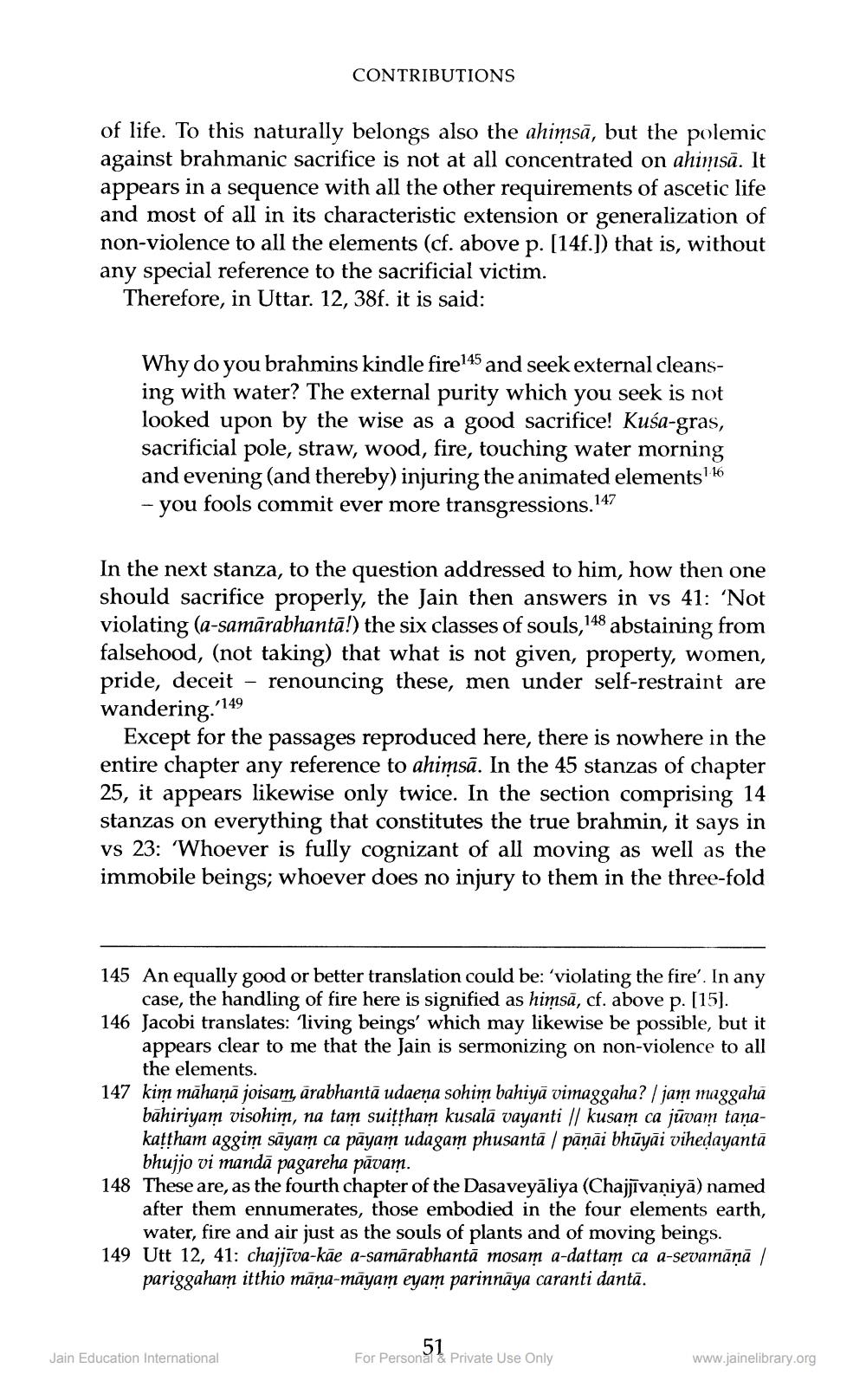________________
CONTRIBUTIONS
of life. To this naturally belongs also the ahimsā, but the polemic against brahmanic sacrifice is not at all concentrated on ahimsā. It appears in a sequence with all the other requirements of ascetic life and most of all in its characteristic extension or generalization of non-violence to all the elements (cf. above p. [14f.)) that is, without any special reference to the sacrificial victim.
Therefore, in Uttar. 12,38f. it is said:
Why do you brahmins kindle fire145 and seek external cleansing with water? The external purity which you seek is not looked upon by the wise as a good sacrifice! Kuća-gras, sacrificial pole, straw, wood, fire, touching water morning and evening (and thereby) injuring the animated elements 116 -- you fools commit ever more transgressions. 147
In the next stanza, to the question addressed to him, how then one should sacrifice properly, the Jain then answers in vs 41: Not violating (a-samārabhantā!) the six classes of souls,148 abstaining from falsehood, (not taking) that what is not given, property, women, pride, deceit - renouncing these, men under self-restraint are wandering.'149
Except for the passages reproduced here, there is nowhere in the entire chapter any reference to ahimsā. In the 45 stanzas of chapter 25, it appears likewise only twice. In the section comprising 14 stanzas on everything that constitutes the true brahmin, it says in vs 23: 'Whoever is fully cognizant of all moving as well as the immobile beings; whoever does no injury to them in the three-fold
145 An equally good or better translation could be: 'violating the fire'. In any
case, the handling of fire here is signified as himsā, cf. above p. [15). 146 Jacobi translates: living beings' which may likewise be possible, but it
appears clear to me that the Jain is sermonizing on non-violence to all
the elements. 147 kim mahanā joisam, ärabhantā udaena sohim bahiyā vimaggaha? / jam maggaha
bāhiriyam visohim, na tam suiţtham kusalā vayanti || kusam ca jūvam tanakattham aggim sāyam ca pāyam udagam phusantā / pāņāi bhūyāi vihedayantā
bhujjo vi mandā pagareha pāvam. 148 These are, as the fourth chapter of the Dasaveyāliya (Chajjīvaniyā) named
after them ennumerates, those embodied in the four elements earth,
water, fire and air just as the souls of plants and of moving beings. 149 Utt 12, 41: chajjīva-kāe a-samārabhantā mosam a-dattam ca a-sevamāņā /
pariggaham itthio māņa-māyam eyam parinnāya caranti dantā.
Jain Education International
For Personal & Private Use Only
www.jainelibrary.org




